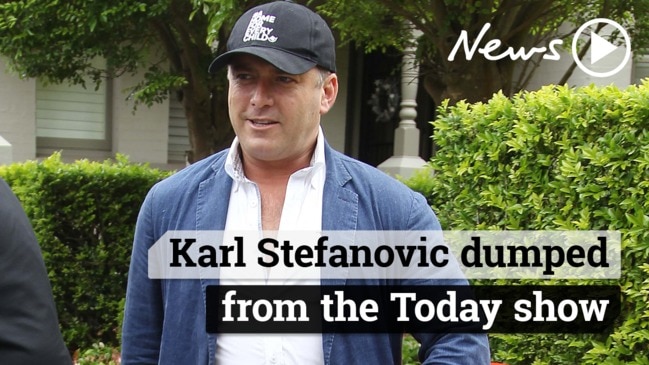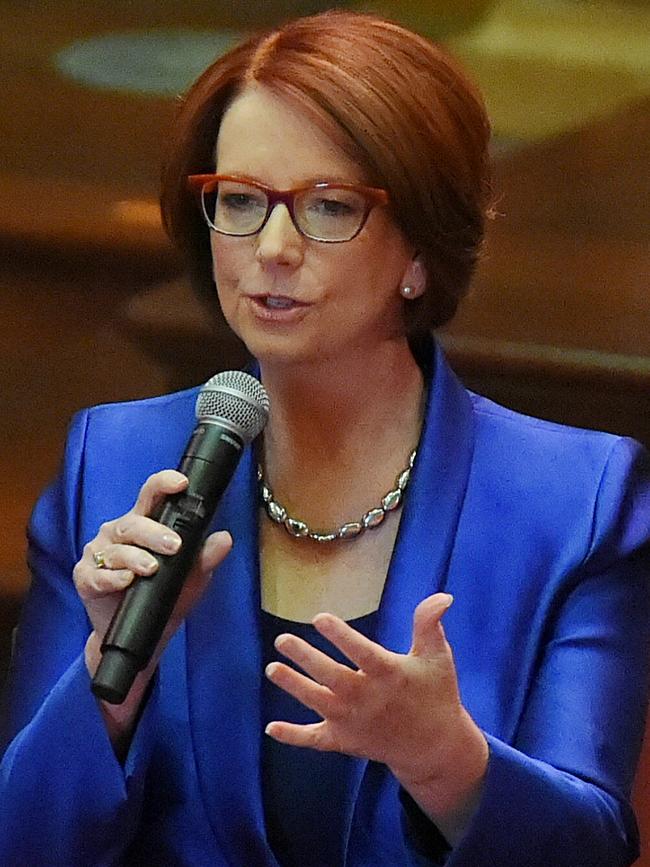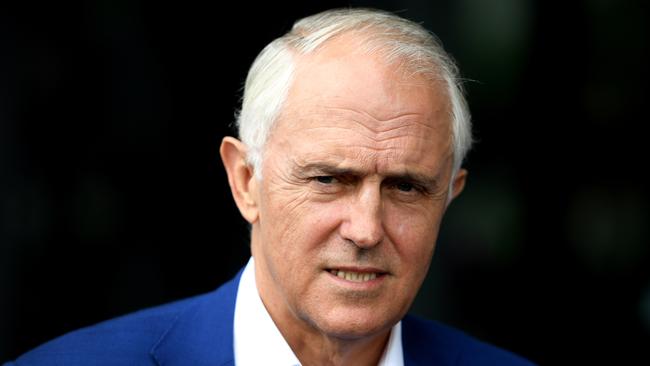Shaun Carney: Patience is no longer a virtue we believe in
The public has shown it is no longer prepared to wait — and it doesn’t matter if you’re an MP or a TV star, writes Shaun Carney.

Opinion
Don't miss out on the headlines from Opinion. Followed categories will be added to My News.
Early in the recent Victorian election campaign, the Labor team started to get some disturbing polling. The numbers were too good. In Labor’s marginal seats and the Liberal-held electorates it was hoping to pick up, the swings to the ALP looked far too high. The last thing you need when you’re campaigning is to work off dodgy information, so they stopped the polling, reset, and polled again.
The numbers in the new polling came back the same. Campaign staff had been asking each other: can there really be that many Labor voters? Now they knew there was no error and that the answer, this time anyway, was “yes”.
MORE SHAUN CARNEY: GANG PROBLEM WON’T JUST GO AWAY
LIBERALS NEED TO EMBRACE QUOTAS
CAMPAIGNS AREN’T WHAT THEY WERE
An old saying in Australian politics — that when a swing is on, it’s on — seems self-evident. But really what it means is that if the public mind has turned on a personality or an issue or a government or an opposition or a party, there’s almost nothing that can be done to change that.
There was a wonderful story in the Herald Sun during the weekend about, of all things, Karl Stefanovic’s hat and its damaging effect on his career. According to Nine insiders, the hat — a sort of outsized fedora — played an important role in persuading network executives to remove Stefanovic from the Today program. Viewers in focus groups kept telling researchers that the headgear turned them off Stefanovic, changing their view of him from boisterous suburban boy made good to overaged hipster wannabe.

Along with the controversies about his personal relationships, the hat was apparently the deal-breaker for a substantial proportion of viewers. And once it’s over, it’s over. There are triggers that push sentiment over the edge, from positive or benign to negative. They might be small things — like a hat! — but they’re enough to do it if there’s other stuff that’s led them to wonder about that person.
What the viewers felt they’d lost was their sense that Stefanovic empathised with them. They couldn’t identify with him any more.
That’s not too different from what happens to political leaders who are deserted by voters. Australians want empathy and understanding from their leaders but they also want credibility and action. They want to be able to trust leaders and governments.
And once they don’t feel they’re getting what they want, they’re no longer willing to be patient.
Opinion now moves quickly in positive and negative directions. The widespread endorsement of same-sex marriage built up in a very short space of time — well inside a single decade. That’s very quick for such a far-reaching social development. So comprehensive was the shift that only a little over a year after it was legislated, there’s not a hint of controversy about it.
But disapproval and disenchantment can take hold much more speedily.
The first two years of the Rudd government seem like a lifetime ago but only because they were the last time the old conventions prevailed: a new government continued to be supported by a solid majority of voters. That changed when Rudd wimped it on climate change in early 2010 and lost some support.

After that, politics went to hell. Julia Gillard took advantage of Rudd’s wobbles and knocked him off. The move troubled some voters and at the subsequent election Labor was pushed into minority government. When Gillard signed on to a carbon tax, having pledged previously she would not do so, public support for her collapsed and she never recovered.
It was a spectacular fall but it was only the beginning. The Abbott government took office in September 2013 but by May 2014, its goose was cooked after a disastrous first budget. Malcolm Turnbull swept into the PM’s chair a year later on a wave of public approval. But he too rode high in the polls for only a few months before voters went off him after they started to conclude that he was more talk than action.

In the 2016 election, Turnbull benefited from the second chance that voters habitually give first-term governments but immediately after that, the polls went back to being sour. And those polls led to his political demise last August and the installation of Scott Morrison. This time, there was no honeymoon at all, just a slump in government support that by now seems locked in.
It was the act rather than the personnel that largely caused that seemingly ineradicable shift. The Liberals could have replaced Turnbull with St Francis of Assisi and they still would have been in strife, although Morrison hasn’t done much as PM to help himself.
Just 63 days from now, Treasurer Josh Frydenberg will deliver his first budget and the May 2019 election campaign will begin in earnest. We seem set to elect a new government led by Bill Shorten but the lessons of recent history tell us that it could all turn to brown pronto. That’s how we roll in the 21st century.
Why are we unwilling to get behind the choices we make at federal elections for more than a few months? There’s no doubt that a lot of us, many politicians included, seem unable to concentrate on anything for very long. And few issues and events “stick” today because of the fast flow of new information. They get old very quickly. It’s a troubled relationship, with voters and politicians locked in a cycle of disappointing each other.
Shaun Carney is a Herald Sun columnist.


